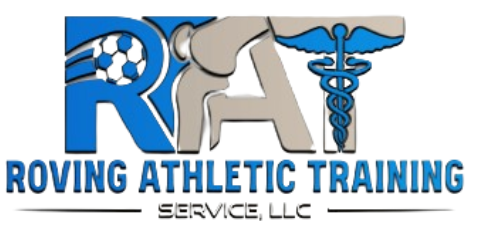
What is an Athletic Trainer?
Athletic trainers provide a range of services aimed at preventing, diagnosing, treating, and rehabilitating injuries and medical conditions related to physical activity and sports. Their expertise extends beyond traditional first aid and encompasses various aspects of sports medicine. Here are some key services that athletic trainers typically provide:
Injury Prevention
- Designing and implementing pre-season conditioning programs
- Conducting injury risk assessments.
- Educating athletes on proper warm-up and cool-down techniques.
Emergency Care
- Administering first aid and immediate care in case of injuries.
- Responding to emergencies such as cardiac events or sudden injuries.
Injury Assessment
- Evaluating and diagnosing injuries, including sprains, strains, fractures, and dislocations
- Utilizing diagnostic tools such as taping, bracing, and compression to support injured areas.
Rehabilitation
- Designing and overseeing rehabilitation programs for athletes recovering from injuries.
- Implementing therapeutic exercises and activities to restore strength, flexibility, and function.
Treatment and Rehabilitation Modalities
- Applying modalities like ice, heat, ultrasound, and electrical stimulation for pain management and tissue healing.
- Administering therapeutic massage and manual therapy techniques
Educational Programs
- Providing education on nutrition, hydration, and ergonomics.
- Instructing athletes on injury prevention strategies and safe training practices.
Concussion Management
- Recognizing and managing concussions, including implementing return-to-play protocols.
Collaboration with Healthcare Professionals
- Coordinating care with physicians, physical therapists, and other healthcare professionals
- Referring athletes to specialists when necessary.
Equipment Fitting and Maintenance
- Ensuring proper fitting and use of protective equipment, such as braces and pads.
- Monitoring and maintaining the condition of sports equipment.
Injury Documentation
- Keeping detailed records of injuries, treatments, and rehabilitation progress.
- Communicating effectively with coaches, athletes, and healthcare providers regarding an athlete's status.
Athletic trainers play a crucial role in the overall health and performance of athletes, working in
various settings such as schools, colleges, professional sports teams, fitness centers, and
healthcare facilities. They contribute to both the immediate well-being of athletes and the
long-term prevention of injuries.
